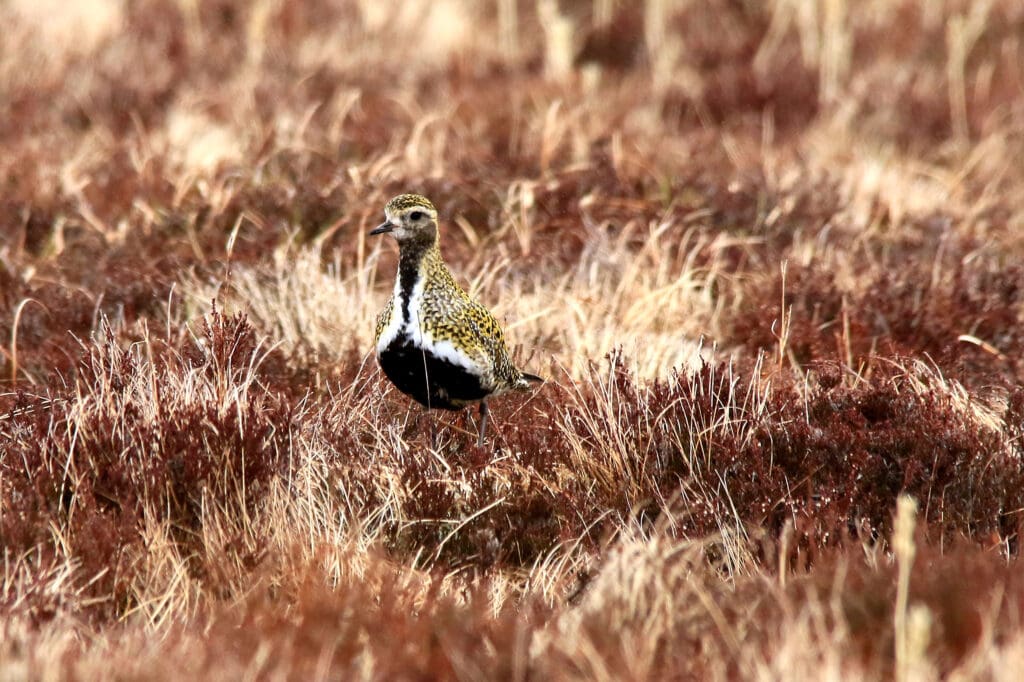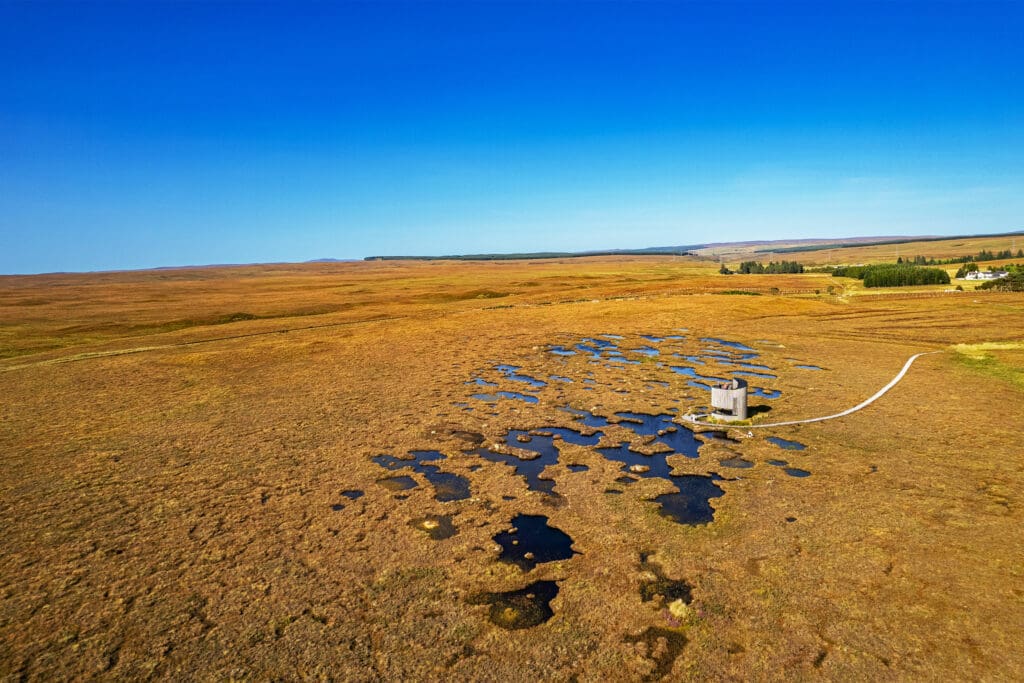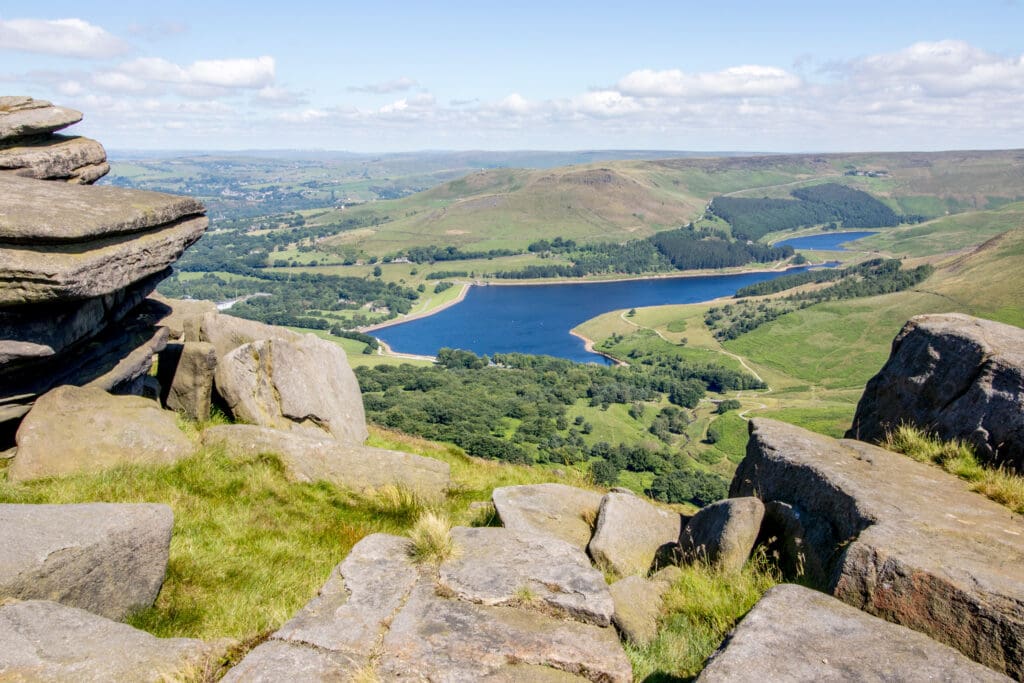Work to restore precious peatland at RSPB Stoborough Heath and RSPB Salterns Copse launched in autumn 2024.
Over 80% of the UK’s peatland habitat is damaged and dried out, which has serious implications for wildlife and climate. Watch a video about why peatland so important here.
Healthy wet peat is the UK’s biggest carbon store, because the plants it hosts – principally Sphagnum mosses – don’t decompose in acidic, waterlogged conditions. Carbon is locked away as long as peat remains intact and wet; as it dries out, though, carbon is released into the atmosphere.
In 2021, the Dorset Peat Partnership was launched, bringing together the RSPB, Dorset Wildlife Trust, Natural England, the National Trust, Forestry England, BCP Council, Environment Agency and one private landowner. Having secured £1 million of funding from the Nature for Climate Peatland Grant Scheme, it’s restoring 16 sites across Dorset.
‘Healthy wet peat is the UK’s biggest carbon store’
“The key aims of the works are to restore the hydrological connectivity of our valley mire and bogs system,” explains Grace Herve, Dorset Peat Partnership Project Manager. “Blocking up drainage systems helps reduce nuisance flooding and starts to store more water and reconnect landscapes.”
At RSPB Stoborough, this involved creating leaky dams and clearing scrub that extracts moisture from the ground. This should not only help to tackle the nature and climate emergency but also benefit species such as sundews, Black Darter dragonfly and the rare Southern Damselfly.
You might also like

How can peatland save the planet?

Forsinard Flows



